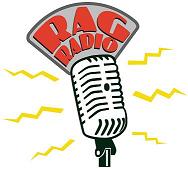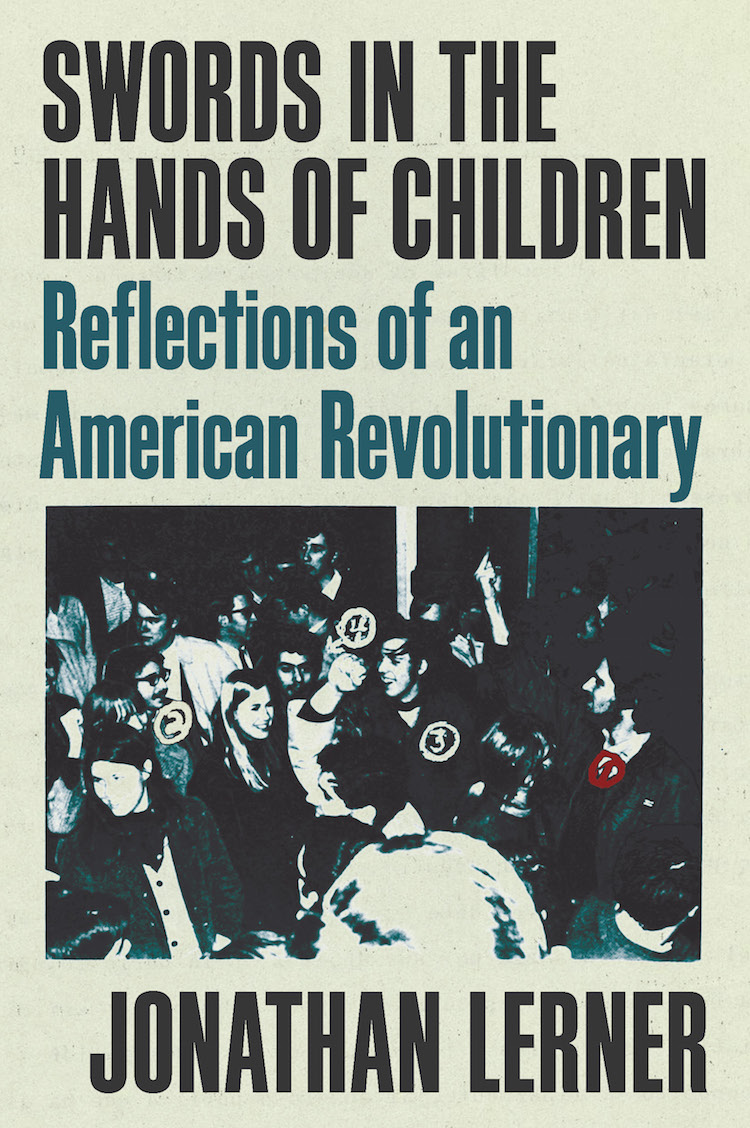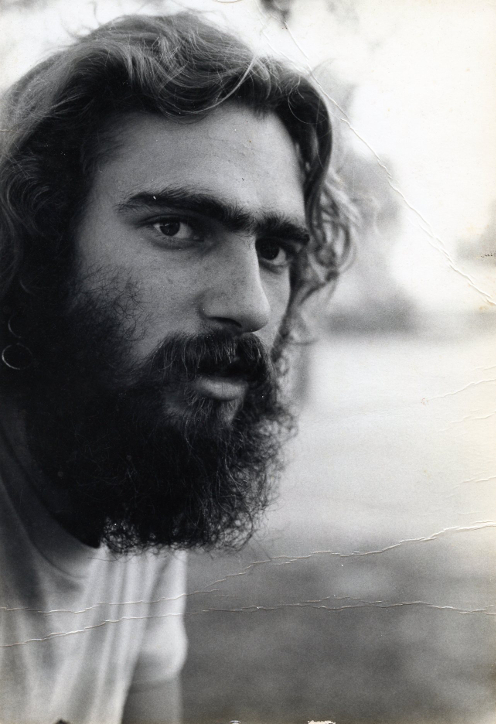Lerner, a closeted gay man active with the Weather Underground, tells a gripping story and reveals his authentic remorse.
 Jonathan Lerner, author of Swords in the Hands of Children, is Thorne Dreyer‘s guest on Rag Radio, Friday, Sept. 15, 2-3 p.m. (CT) on KOOP 91.7-FM in Austin and streamed live here.
Jonathan Lerner, author of Swords in the Hands of Children, is Thorne Dreyer‘s guest on Rag Radio, Friday, Sept. 15, 2-3 p.m. (CT) on KOOP 91.7-FM in Austin and streamed live here.
- Also see “ Blowing themselves up: Revisiting the Weather Underground” by Jonah Raskin on The Rag Blog.
[Swords in the Hands of Children: Reflections of an American Revolutionary by Jonathan Lerner (December 5, 2017: OR Books); Hardcover; 224 pp.]
The words “fear” and “frightened” pepper gay writer Jonathan Lerner’s intriguing account of how he, a young idealist with sincere interest in the 1960s political movements for civil rights and peace, became a committed member of the violence-prone Weather Underground Organization.
With an interest during his late teenage years in a possible career as an actor, and already aware of his homosexual desire, the closeted Lerner held back, noting “the ubiquitous and openness of gay people in theater frightened me.” A few pages later, recounting his experience at a major anti-war march on the Pentagon in October of 1968 where there was confrontation between demonstrators and police in riot gear, he mentions his “fear of… those swinging truncheons.” Once immersed himself as a soldier in the Weather Underground, whose leaders and their politics turned autocratic and cruel, Lerner becomes fearful of his comrades.
I admire Lerner’s honesty as he reveals his own authentic remorse.
More important than any of the fears, he is courageous in writing this book, entitled, Swords in the Hands of Children: Reflections of an American Revolutionary. Having observed how some other “alumni” of the Weather Underground show minimal remorse or regret, I admire Lerner’s honesty as he reveals his own authentic remorse and provides details about the whole nasty episode.
There is a full-length article in Wikipedia about the Weather Underground, and it lists the bombings they engaged in. They chose symbolic targets to make points about imperialism and racism, and they were lucky these bombings didn’t kill people. The Weathermen liked to brag that their bombings were done carefully so as to avoid such harm. Yet, they are compelled to acknowledge the Greenwich Village townhouse bomb explosion that took the lives of three Weathermen whom both Jonny and I knew — Ted Gold, Terry Robbins, and Diana Oughton.
Whenever I criticize the Weather Underground, as I have done with consistency since its beginnings, I like to make the point that the buildings they bombed were made by hard-working construction laborers, and that their bombs were an insult to the working class they supposedly admired. Most targeted buildings, after all, could be converted to something useful, such as a school or health care facility.
There were some former Weathermen who got involved with a group called the Black Liberation Army (BLA), close to the Weathermen in philosophy, and four of these people ended up serving long jail terms because one of their actions – a Brinks robbery undertaken on behalf of the BLA in 1981 – resulted in the deaths of a Brinks guard and two Nyack, N.Y., police officers.
Lerner does not hesitate to state that the group was engaged in terrorism.
Lerner does not hesitate to state that the group he belonged to was engaged in terrorism and contributing “to its momentum.” Lerner writes he never placed any of the bombs, and I believe him, but he did a lot of propaganda work for the organization.
I am proud that this gay man, finally fully out of the closet, does not waffle and takes a strong position that shows remorse as well as rejection of the Weathermen’s pathway. The following paragraph is one I especially liked:
There are former Weatherpeople who insist that these careful actions, sanitized of injury to human beings, were merely symbolic and not terroristic. Benign as leaflets, they imply; like guerrilla theater. When they say this, you can almost smell the patchouli oil and hear the rattling love beads that costumed the Weather Underground’s gentle-warrior persona. But this assumes the narrowest definition of terrorism as only what injures or kills people. It elides the psychological and cultural ramifications of violent actions.
(Note: I had to look up the word “elides,” as initially I thought it was a typographical error.)
Legions of gay men have fallen in love with a straight man and suffered for it.
There are legions of gay men who have fallen in love with a straight man and suffered for it. Lerner was one of those, and the object of his desire was Jeff Jones, another leftist who was Lerner’s college pal at Antioch. While Lerner is not so crass as to call Jeff Jones “eye candy,” both the author and I were among many young people, male and female, who were smitten by Jones’s blond surfer boy good looks. It’s clear to me (and others who know about Lerner’s life) that Lerner simply fell in love, head over heels, for Jones and this became a factor in Lerner’s political evolution
It is a fact that as a significant portion of the American people gradually became horrified at the grim reality and carnage of the Vietnam War, the largest organization striving to end that war was Students for a Democratic Society (SDS). I was a member of SDS as well as a staff member of Liberation News Service (LNS) during those times, and I retain vivid memories of SDS’s work on behalf of peace and social justice did as well as its sad ending caused not by the FBI but by Weatherman.
A key event in this story is the SDS convention in mid-June 1969, in Chicago, which I attended with Lerner and about a thousand other activists. At this event, three factions battled for control of SDS, and the future Weathermen won in an election that involved fraudulent vote-counting, according to Lerner’s account.
That sex was likely an incidental part of a bizarre trend promoted by macho men.
That was one of the interesting revelations in Lerner’s book, along with his revelation of having sex with Weatherman leader Bill Ayers, who later married Bernardine Dohrn. That sex was likely an incidental part of a bizarre trend, promoted by macho men, to “smash monogamy” and promote orgies. Lerner reveals the ugliness of the Weather Underground in a way that will please many readers, except for the Weatherman alumni and those who still toady to them.
Weatherman called for a “revolutionary youth movement” of white radicals working alongside and even under the leadership of black self-styled revolutionaries, labeled “the vanguard,” especially the Black Panther Party. It is clever and realistic for Lerner to title his book Swords in the Hands of Children (a modification of a phrase in Bob Dylan’s “Hard Rain.”) Almost all of these people were in their twenties, seething with anger at frustration and their inability to stop the war, overwhelmed simultaneously by sexual desire, convinced they were very smart yet were ridiculously immature in life experience and lacking in wisdom.
I took a strong stance against Weatherman early on for two main reasons: 1) its embrace of violence, and 2) the fact that its leaders chose to completely shut down and destroy SDS after being elected to shepherd its thousands of members who believed in democracy, not authoritarian rule.
Jonny is now married to a man whom he lives with in a Hudson River town.
I have known Jonny Lerner since the 1960s, but he is not a close friend. The gay content of this book is interesting, if perplexing. Jonny, who is now married to a man whom he lives with in a Hudson River town, didn’t really come out until he was in his forties. When we met in the 1960s, we were both closeted but in different ways. My closet door was partly open — I was very secretive but I was a self-aware, self-accepting gay man. He was struggling with his gay identity. Someone whispered to me at an SDS national meeting in 1969 that he was gay, and I made an awkward attempt to hook up with him and he rejected me without any real conversation or interaction.
I have no resentment about this. My view of him and his book is mostly positive, especially what I perceive as significant honesty in this memoir, but I remain amazed that it took so long for him to fully come out of the closet. And when I commented to him about this, he emailed me: “Your best source would be my therapist John Mungo. He is however dead.”
Indeed, the book is dedicated to “the memory of my psychotherapist John Wiley Mungo, who always gleefully referred to my Sixties as those days when I was a ‘big bad radical hippie.’” There are several places in Lerner’s narrative when his memories are couched in psychological terms. The very word “homophobia” was coined by a psychologist, the late George Weinberg.
When living in an area of Chicago where many gay men resided, Lerner spoke openly with straight friends about “rolling a faggot” for money. Like some other gay men I’ve known who were hustlers, Lerner engaged in sex work (mostly in Europe, and wanting to serve the underground movement he had joined). He admits he was “just using” these men. Lerner did not invent the concept of a semi-closeted gay man having sex for money with zero emotional attachment. There is an odd segment, late in the book, when Lerner honors these wealthy johns with obvious appreciation for the comfort he experienced with them.
We’ve all met gay men and lesbians who come out late in life.
We’ve all met gay men and lesbians who come out late in life. Some gay people rant about them as cowards. I prefer to forgive and respect personal choice, so I certainly forgive Lerner as well as America’s leading gay celebrity, Ellen DeGeneres. However, since Lerner was an advocate for social justice, I really cannot understand how he could observe the early gay liberation movement and yet ignore it, precisely as this movement was addressing his own reality as a victim of oppression.
I wonder, when writing this book, if he remembered the time that a fellow SDSer (me) approached him. I wonder, when he became aware of the embryonic gay liberation movement in 1969-71, if he considered getting involved the way I did. Wonder if and when he become aware that SDSer Carl Wittman came out early in San Francisco’s gay scene — authoring an important document in 1969 that became known as “The Gay Manifesto,” influencing me and thousands of others.
I wonder if he knew about Jay Guy Nassberg (now Jason Victor Serinus), a key player in Amherst College SDS who went on to become an SDS “campus traveler,” and later was courted by the Weather Underground while he (along with Lerner) was a participant in the first Venceremos Brigade in Cuba, and who returned to the United States and founded the New Haven Gay Liberation Front in the spring of 1970.
Clearly, and sadly, Lerner had some awareness of the new movement, but was simply too afraid or distracted to join us. Something very powerful inside him kept him in the closet, even led him to a heterosexual marriage that lasted several years (a fact I learned from a mutual friend but which he omits from this book). I have no problem wishing him joy now and thanking him for this valuable and often entertaining book.
[Allen Young was a member of Students for a Democratic Society (SDS) and worked for more than three years with Liberation News Service (LNS) in New York City. He joined the New York Gay Liberation Front in 1970, and co-edited several books with lesbian author Karla Jay. He is the author of Gays Under the Cuban Revolution.]
- Read more articles by Allen Young on The Rag Blog.




















Lots of stuff I didn’t know about you, Allen, and I appreciate that. I met some Weather Underground women when I worked at RAT newspaper, after the women’s takeover, but they were their own clique and the rest of us didn’t get to know them. Except for Jane Alpert, who ended up doing prison time for a bombing scheme.
Some years after the Vietnam War, I went to a meeting organized by former SDS/Weather Underground members. They talked about organizing workers, and about “liquidating the class question.” I raised my hand and asked what that was supposed to mean to the average worker. The lead speaker said that in order for the revolution to proceed, the workers would have to get educated and learn the correct terminology.
I was disgusted. These kids were so obviously upper middle class with private college educations, and with their heads buried in pseudo-Marxist jargon. (BTW Jane Alpert was a Swarthmore grad.)
Coincidentally, the 2002 book, “West-Bloc Dissident: A Cold War Memoir” (which contains a chapter titled “Government Sabotage of the Underground Press”), by former 1960’s “Washington Free Press” anti-war newspaper writer William Blum, includes following reference on page 80 to apparent post-1970’s political shift of writer of above review: “…There was also Allen Young, my journalist and anti-war colleague…When I spoke to him on the phone in 1999 for the first time in some 30 years, he was uncomfortable with the fact that I was still critical of American foreign policy. This, while American bombs were falling on Yugoslavia….”
This comment by bob a.f. seems quite irrelevant to my book review, and all it is, really, is an off-the-wall comment about my alleged “post-1970s political shift” based on the writing of William Blum. This is not a comment about my book review, but instead is an odd effort to discredit me and, presumably, discredit my comments about Lerner’s book. This is not what I would call a “principled” way of discussing things.
This discussion has prompted me to also re-read another account of the 1969 SDS convention that’s on my bookshelf. None of the stories square with what I remember–though granted, it was a long time ago, and I can’t say I trust my brain anymore. I went to the convention from a backwater Southern California state university chapter. Of course we hated PL, even though we’d never met anybody in PL. You just hated PL. They were old left, and that was bad. But I was not a child–I was 24–and at the convention, my impression was that the Worker-Student Alliance members were the grownups in the room. They were the ones with some idea of how to be a revolutionary throughout your life. When RYM walked out, I stayed. I assumed that those who left were leaving SDS. We who stayed were SDS–what was left of it.